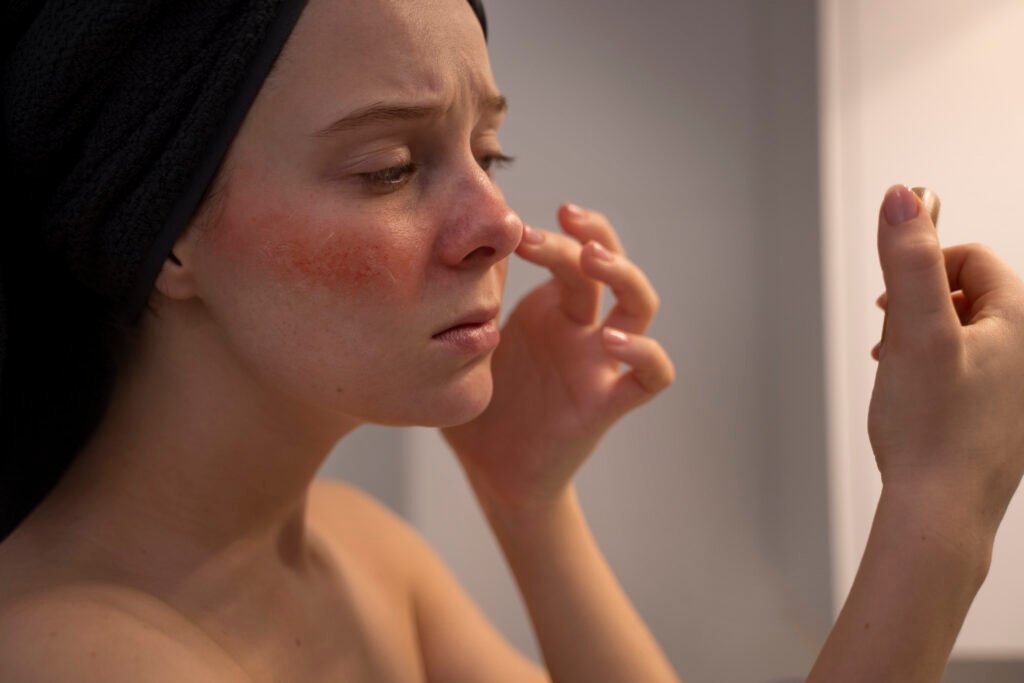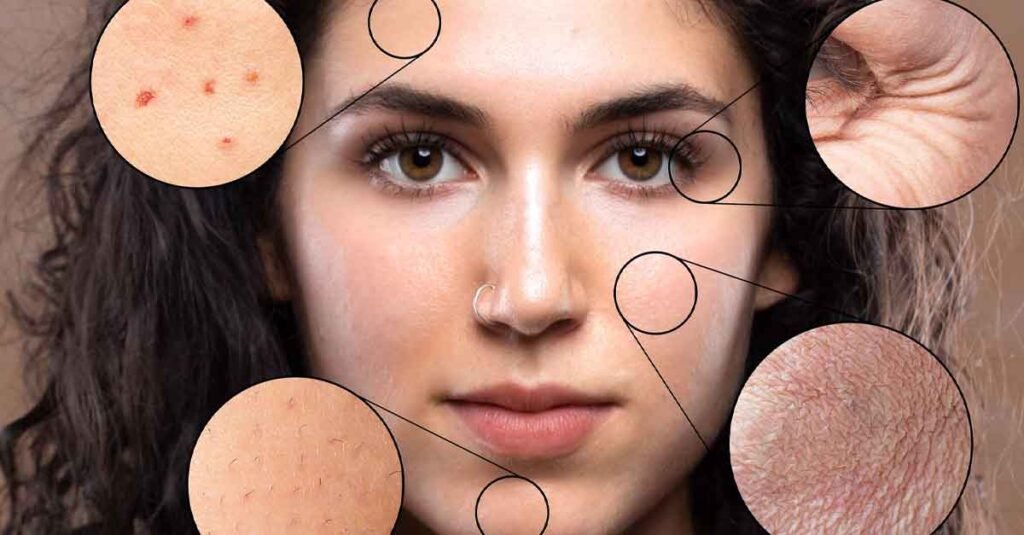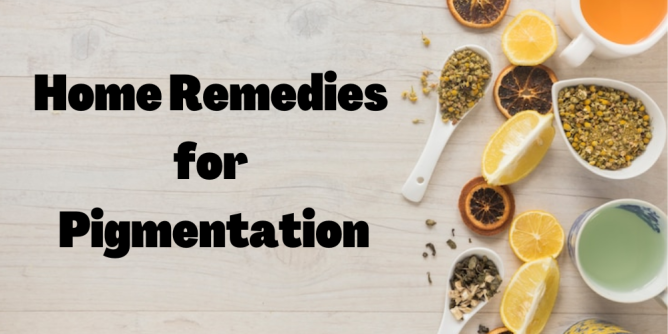
Suffering from Pigmentation ? Discover the Path to Clear, Radiant Skin!
Pigmentation issues, including dark spots, melasma, and uneven skin tone, can be frustrating and affect your confidence. These conditions often result from sun exposure, hormonal changes, aging, or inflammation. Understanding the root cause is essential for effective treatment.
Thankfully, various solutions can help you regain a clearer complexion. Incorporating a consistent skincare routine with products containing ingredients like vitamin C, niacinamide, and retinoids can brighten skin and reduce pigmentation over time. Sun protection is also crucial—wearing sunscreen daily prevents existing spots from worsening and new ones from forming.
For stubborn pigmentation, professional treatments such as chemical peels, laser therapy, or microdermabrasion offer targeted solutions. Consulting with a dermatologist can help tailor the right approach for your skin type and condition.
Natural remedies, like aloe vera or licorice extract, can provide additional support. By combining proper care, protective habits, and expert advice, you can reduce pigmentation and achieve a more even-toned, radiant complexion. Start your journey to healthier skin today!
Why does Pigmentation appear on your face ? Unlocking the Mystery Behind Dark Spots
Have you ever glanced in the mirror and noticed dark patches or spots on your face, wondering how they got there? Facial pigmentation, a common skin concern, results from an overproduction of melanin—the pigment responsible for our skin, hair, and eye color. But what triggers this excess melanin? Let’s uncover the main culprits:
1. Sun Exposure:
The number one cause is UV radiation. When your skin is exposed to the sun, it naturally produces more melanin to shield itself from harmful rays. This defense mechanism can lead to sunspots, freckles, and uneven skin tone. Without proper sun protection, these spots can darken and multiply.
2. Hormonal Changes:
Hormones play a significant role, especially for women. Pregnancy, hormonal contraceptives, or conditions like polycystic ovary syndrome (PCOS) can trigger melasma, often called the “mask of pregnancy.” Hormones stimulate melanin production, causing symmetrical dark patches on the face.
3. Aging and Genetics:
As we age, our skin’s natural processes slow down, and accumulated sun damage becomes more apparent. Genetics also determine how prone you are to pigmentation issues—some people are simply more susceptible due to their DNA.
4. Skin Trauma and Inflammation:
Post-inflammatory hyperpigmentation (PIH) can occur after acne, cuts, or burns. Even aggressive skincare treatments can leave behind dark marks as the skin heals, producing extra melanin in response to trauma.
5. Medications:
Certain medications, such as antibiotics, chemotherapy drugs, and some anti-seizure medications, can increase skin sensitivity to the sun or cause pigmentation changes as a side effect.
6. Lifestyle Factors:
Stress and lack of sleep can trigger hormonal imbalances, indirectly affecting melanin production. A poor diet lacking essential vitamins can also impact skin health and exacerbate pigmentation issues.
Understanding the root cause of your pigmentation is the first step in addressing it effectively. By identifying triggers and adopting targeted treatments—such as sun protection, gentle skincare, and professional therapies—you can reduce dark spots and achieve a brighter, more even complexion. Your journey to radiant skin starts with knowledge and care!

How many types of pigmentation are there ?
Facial pigmentation can manifest in various forms, each with distinct characteristics and causes. Understanding these types can help you identify the issue and choose the right treatment approach. Here are the most common types of pigmentation:
1. Hyperpigmentation
This general term refers to any darkening of the skin due to excess melanin production. It can occur anywhere on the body and often results from sun exposure, skin injury, or hormonal changes.
2. Melasma
Known as the “mask of pregnancy,” melasma appears as symmetrical, patchy brown or grayish discoloration, typically on the cheeks, forehead, nose, and upper lip. It’s triggered by hormonal changes, such as pregnancy or oral contraceptives, and exacerbated by sun exposure.
3. Sunspots (Solar Lentigines)
Also called age spots or liver spots, sunspots develop due to prolonged sun exposure and typically appear on areas frequently exposed to UV rays, such as the face, hands, and shoulders. They are usually small, flat, and brown.
4. Post-Inflammatory Hyperpigmentation (PIH)
PIH occurs after skin inflammation or injury, such as acne, burns, or cuts. Dark spots form as the skin heals and produces excess melanin. This type of pigmentation can affect any skin type but is more common in darker skin tones.
5. Freckles (Ephelides)
Freckles are small, light brown spots that usually appear on fair-skinned individuals and are often genetic. They become more noticeable with sun exposure and are generally harmless.
6. Café-au-Lait Spots
These are flat, light brown patches present at birth or developing early in life. While usually harmless, multiple café-au-lait spots could indicate an underlying genetic condition, such as neurofibromatosis.
7. Periorbital Hyperpigmentation
Commonly known as dark circles, this type of pigmentation affects the area around the eyes. It can be caused by genetics, lack of sleep, allergies, or skin thinning with age.
Understanding these types of pigmentation helps in identifying causes and selecting the most effective treatments, from skincare products to professional therapies. Knowledge is your first step toward a clearer, more radiant complexion!

Natural Remedies for Reducing Pigmentation
If you’re looking for natural ways to reduce facial pigmentation, you’re in luck! Nature offers powerful ingredients that can help lighten dark spots and even out your skin tone. Here are some effective remedies to try:
1. Aloe Vera
Aloe vera contains aloin, a natural depigmenting compound. Apply fresh aloe vera gel to affected areas and leave it overnight. Regular use can lighten dark spots and soothe the skin.
2. Potato Juice
Potatoes contain natural enzymes and vitamin C, which act as gentle bleaching agents to lighten dark spots. Grate a potato and extract the juice, then apply it to the affected areas using a cotton ball. Leave it on for 15-20 minutes before rinsing off with lukewarm water. Regular application can help fade pigmentation and brighten your skin naturally.
3. Lemon Juice
Rich in vitamin C and citric acid, lemon juice acts as a natural bleaching agent. Dilute it with water, apply it to the pigmentation spots, and leave it for 10-15 minutes. Rinse thoroughly and apply sunscreen afterward, as lemon can make your skin photosensitive.
4. Turmeric
Turmeric contains curcumin, which has anti-inflammatory and antioxidant properties. Mix turmeric powder with milk or honey to form a paste and apply it to the face. Leave it on for 15 minutes before rinsing.
5. Green Tea Extract
Green tea is rich in antioxidants that can reduce melanin production. Brew a green tea bag, let it cool, and apply it to the dark spots. Alternatively, use green tea-infused skincare products.
6. Licorice Extract
Licorice contains glabridin, which inhibits melanin production. Apply licorice root extract directly to pigmentation spots or use creams containing this ingredient.
7. Apple Cider Vinegar
ACV contains acetic acid, which helps lighten pigmentation. Mix equal parts ACV and water, apply to the affected areas, and rinse after 5-10 minutes. Always do a patch test first to avoid irritation.
8. Honey and Yogurt Mask
Honey moisturizes, while yogurt contains lactic acid, which gently exfoliates the skin and lightens dark spots. Mix them together and apply as a mask for 20 minutes before rinsing.
9. Papaya
Papaya contains papain, an enzyme that promotes skin renewal. Apply mashed ripe papaya to your face or use it in masks to gently exfoliate and reduce pigmentation.
Incorporating these natural remedies into your skincare routine can help you achieve a clearer, more even complexion. Remember, consistency is key, and always use sunscreen to prevent further pigmentation!
Follow @Shikha.agarwal02 for more health insights
Or Direct Consultation Whatsapp At +91 98311 91518, +91 82400 22632
